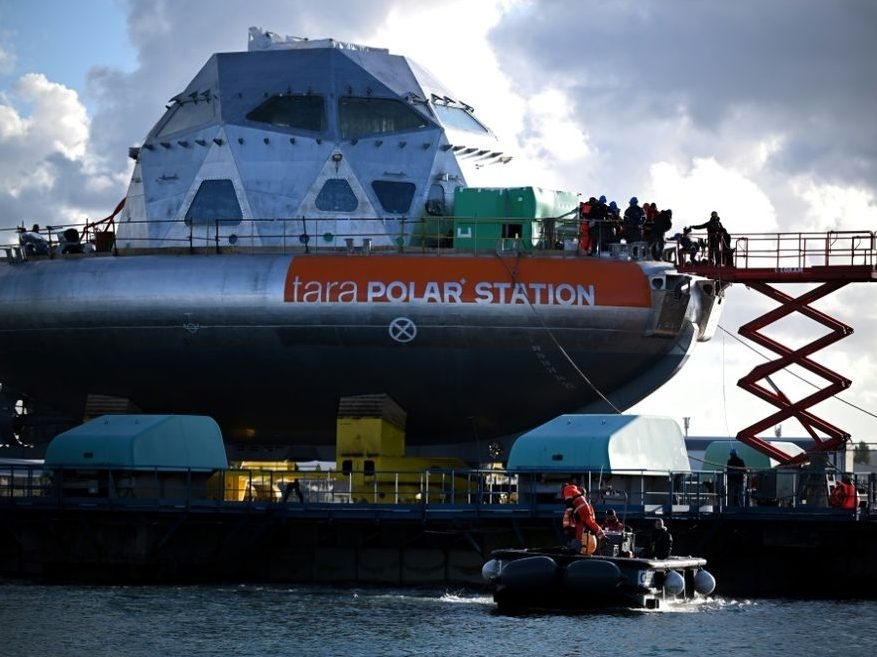A groundbreaking Arctic research station, the Tara Polar Station, is preparing for its inaugural voyage next year, but a critical adjustment has been made to its operational plan. The expedition will deliberately avoid surveying Russian waters, a decision stemming from the current, heightened geopolitical tensions in the region.
This unique facility, often likened to a polar “space station,” is a 110-tonne floating laboratory engineered to become embedded within the Arctic ice. Once frozen in, it will drift naturally with the ice pack for an extended period – between 350 and 500 days – allowing scientists to study one of Earth’s most enigmatic and rapidly changing environments.
The station received permission to briefly navigate Russian waters, between August 25th and September 15th, solely to reach its designated starting point above the Gakkel Ridge. This underwater mountain range stretches between Siberia and Greenland, representing a crucial, yet largely unexplored, area of the Arctic.

However, even within these permitted waters, a significant restriction has been imposed. Scientists will abstain from conducting any acoustic surveys of the ocean, a vital component of their broader research objectives. The decision isn’t a formal prohibition, but a pragmatic acknowledgement of sensitive defense concerns.
“Due to defence considerations, it’s too complicated,” explained Romain Trouble, director of the Tara Ocean Foundation, following recent testing in the far north. “We can’t listen to what’s happening underwater, otherwise, we can’t pass.” This means no active sonar or acoustic programs will be deployed while traversing Russian territory.
The area of transit lies in close proximity to the Kola Peninsula, a strategic location housing Russia’s Northern Fleet, including submarines equipped with nuclear capabilities. This proximity necessitates a cautious approach to avoid any potential misinterpretations or escalations.
The Tara Polar Station itself is a remarkable feat of engineering, resembling an igloo constructed atop a robust buoy. Built in Cherbourg, France, it’s designed to withstand immense pressure from the surrounding sea ice and endure temperatures plummeting to -52 degrees Celsius.
This ambitious expedition will involve a dedicated team of researchers, swelling to 18 members during the summer months and reducing to 12 during the harsh winter. Thirty research centers across 12 nations are collaborating on the project, focusing on biological studies, climate change impacts, and the pervasive issue of pollution.
The initial voyage marks the beginning of a long-term commitment to Arctic research. A total of ten expeditions are currently planned between 2026 and 2045, promising a wealth of new data and insights into this critical region of our planet.





